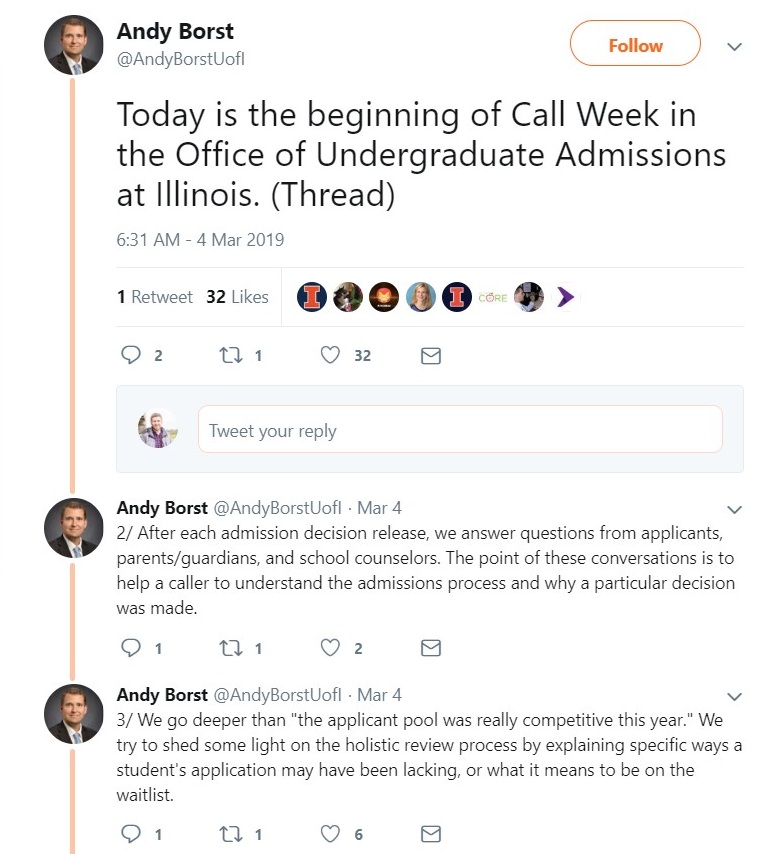Sitting in my to-do list for about a fortnight has been this twitter link:

If you’re not entirely sure what this means, let me lay it out. Andy Borst is the Director of Admissions at the University of Illinois Urbana-Champaign, ranked in the top 50 in the US News & World Report rankings. In this twitter thread, he describes how he devotes a week of his and his staff’s time to answer questions from students (or their parents or counselors) who did not gain admission to the university. This quote is worth repeating:
We walk through our assessment of the strength of the student’s academic record, the context of the test scores, the strengths and weaknesses of the essay/activities, and the factors that made an academic program competitive for admission.
When I first saw this tweet, I wanted to write an article about it to demonstrate a theme I return to time and again: university admissions in the US works very differently from in other parts of the world (and students who apply to the US not knowing this risk being frustrated and disappointed).
However, events overtook me and writing about other things took priority, until today when I realised that I did now have time to write about this case study. And then, conveniently, I get this counter example in an article from The Times:
The article focuses on this revelation:
A source close to Cambridge admissions told The Times that while parents had always written letters asking for explanations, more were now emailing or using disclosure legislation. “Freedom of information has given them another weapon they can use to find out why an offer wasn’t made, and more are using it to access information,” the source said.
This quote, from the Head of Magdalen College School, shows how differently most people in the UK expect university admissions to work:
Helen Pike, head of Magdalen College School, which had 46 Oxbridge offers this year, said that Oxford and Cambridge already sent back comments on why some candidates were unsuccessful, often with test scores.
She said: “Feedback culture is a drain on organisations. The burden cumulatively outweighs the benefit to the individual in my view. Parents will be keen to have it — but should they be? And there’s the question of how frank/truthful it will be. There’s a danger of inventing spurious negative reasons why people don’t succeed when often candidates were quite deserving and perfectly worthy of a place but in a strong field.”
So on the one hand we have a highly selective US university encouraging unsuccessful candidates to find out why they were denied, while in the UK even the head of a school doesn’t think her students should be given feedback.
Now, clearly Andy Borst’s attitude here is not common practice in the USA, but it does illustrate the wider point at how admissions in the US treats candidates as people, while in the UK we run an application process. Neither is better or worse than the other, but clearly they are different.
Anyone applying to US universities expecting the system to be like UCAS, or someone applying to the UK thinking that the same factors at work in the US will apply in the UK, needs to understand just how different each system is.









